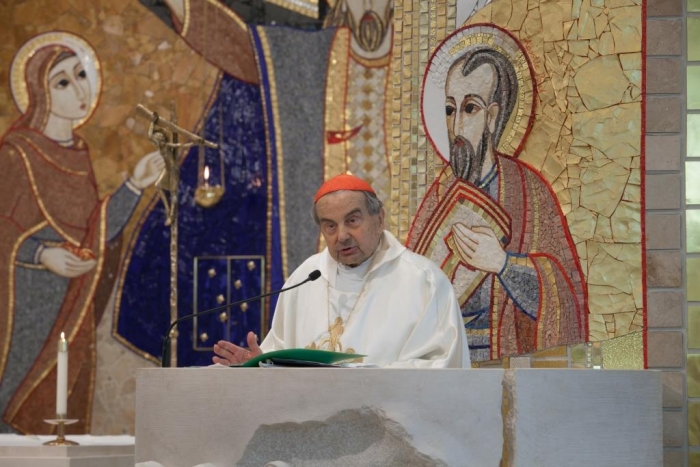
Cardinal Carlo Caffarra, archbishop emeritus of Bologna and founding president of the Pontifical John Paul II Institute for Studies on Marriage and Family, passed away on September 6, 2017.
After his ordination to the priesthood in 1961, he earned a doctorate from the Pontifical Gregorian University and taught at the Catholic University of the Sacred Heart in Milan and at the Theological Faculty of Northern Italy as a specialist in moral theology and medical ethics.
He served as a member of the International Theological Commission from 1974 to 1984 and was a Consultor for the Congretation for the Doctrine of the Faith. Following the 1980 Synod of Bishops on the Family, for which he was appointed as a theological expert, Pope John Paul II entrusted him with the leadership of the Pontifical John Paul II Institute for Studies on Marriage and Family, where he served as president until 1995. Under his guidance, additional sessions of the Institute were founded in the United States, Spain, and Mexico.
He then served as Archbishop of Ferrara-Comacchio from 1995 until 2003, when he was appointed Archbishop of Bologna. He was created a cardinal by Pope Benedict XVI in 2006.
In his address to the graduating class of 2016 at the Washington Session, Cardinal Caffarra reflected on the vision of Pope John Paul II in founding the Institute:
[R]esearch into the foundation of marriage and the family, a return to the Beginning, was the task of the Institute. The two main characteristics of the Institute follow from this: a strong commitment in the field of anthropology, and Christocentric thought. . . .
[H]e put at the foundation of the Institute the idea that there is a sort of reciprocal in-dwelling between anthropological reflection and reflection on marriage. The truth about man is the way to know the truth about marriage; the truth about marriage is the way to know the truth about man. Reflection on marriage is the crossroads where all these issues meet: the truth of love and sexuality, the truth of freedom, the truth of the genealogy of the person, and of human society.
The full text of his address, in which he relates this foundational vision to our current cultural situation and the future task of the Institute, can be read here.